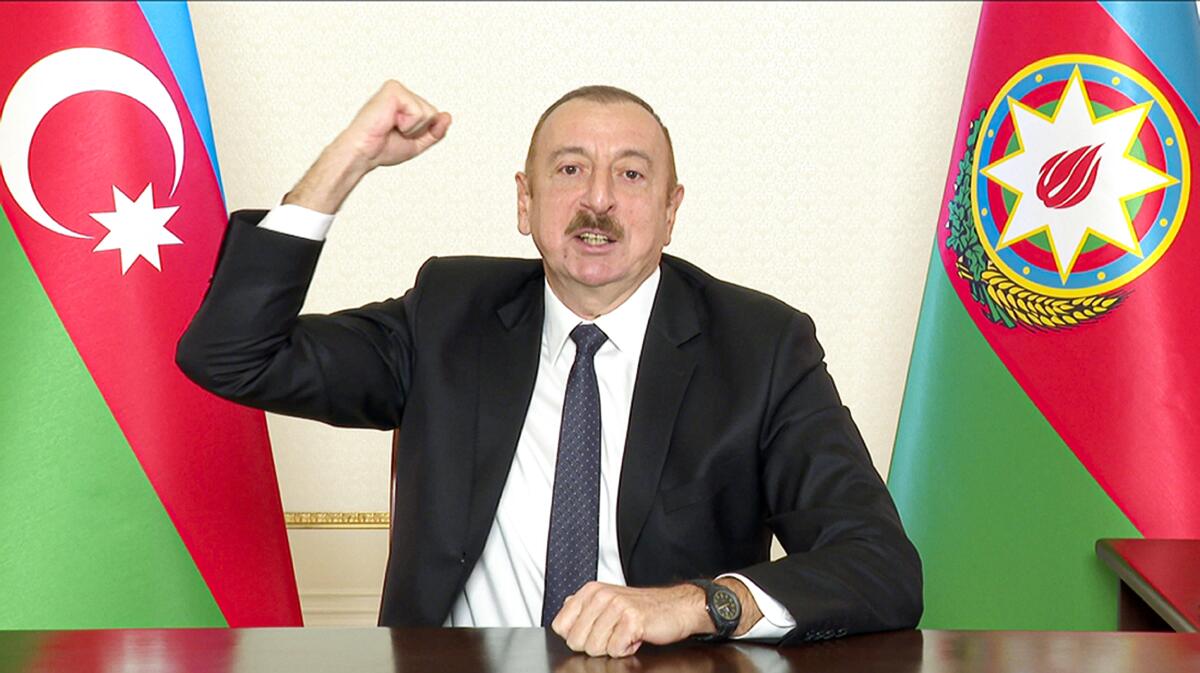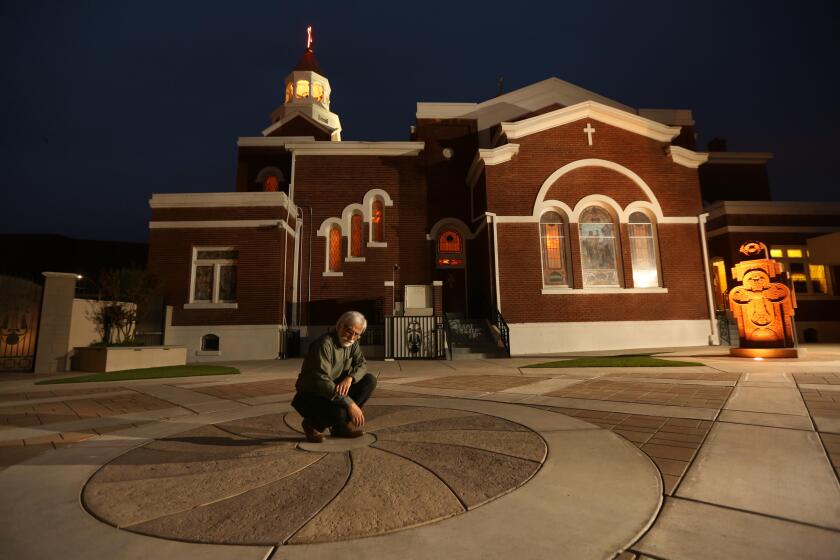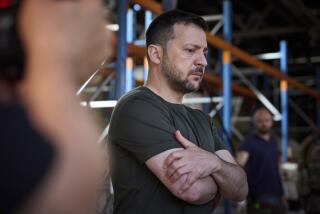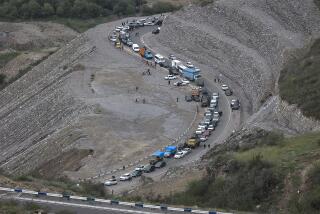Azerbaijan’s president vows to revive region ceded by Armenia

BAKU, Azerbaijan — Azerbaijan’s president vowed Wednesday to rebuild and revive the Kalbajar region, the latest territory that Armenian forces have ceded in a truce that ended six weeks of intense fighting over Nagorno-Karabakh.
“We will restore Kalbajar — let no one have doubts about that — and life will return there,” President Ilham Aliyev said in an address to the nation soon after Azerbaijani troops entered the region.
“I gave an order to prepare a general layout of the reconstruction of the town, and not just the town of Kalbajar, but of all of the towns” in the region, also known as Kalbajar.
Nagorno-Karabakh lies within Azerbaijan but has been under the control of ethnic Armenian forces backed by Armenia since a separatist war there ended in 1994. That war left not only Nagorno-Karabakh itself but substantial surrounding territory in Armenian hands.
Heavy fighting broke out Sept. 27 — the biggest escalation of the conflict between the two ex-Soviet nations in more than a quarter of a century. The fighting killed hundreds and possibly thousands of people.
A truce brokered by Russia two weeks ago halted the violence and stipulated that Armenia hand over control to Azerbaijan of some areas it holds outside Nagorno-Karabakh’s borders.
Column One: Armenian Americans marvel at an elder’s generosity as they grieve over an ancestral home
Clara Margossian, 102, built a life in Fresno after her family fled the Armenian genocide. With the war in Nagorno-Karabakh, she has given $1 million to help Armenia, a homeland she’s never seen.
The first one, Aghdam, was turned over last week. Kalbajar was expected to be handed over Nov. 15, but Azerbaijan agreed to delay the takeover after a request from Armenia. Azerbaijani officials said worsening weather conditions made the withdrawal of Armenian forces and civilians difficult along the single road that connects the mountainous region with Armenia.
During the fighting, Azerbaijani forces also recaptured significant swaths of land south of Nagorno-Karabakh, including the towns of Jabrayil and Fizuli and areas around them. Aliyev on Wednesday accused Armenians of destroying those towns and promised to rebuild them.
“We will hold the enemy accountable.... When I visited the city of Aghdam, I didn’t find a single standing building, and neither in Fizuli or Jabrayil. They destroyed everything,” Aliyev said. “We will revive these cities and regions again. We have big plans to rebuild these areas.”
The truce was celebrated as a victory in Azerbaijan but sparked mass protests in Armenia, with thousands taking to the streets to demand the ouster of the country’s prime minister.
Armenia and Azerbaijan enlist artists, lobbyists and online activists in a 21st century propaganda war in their fight over Nagorno-Karabakh.
Ahead of the handover, some ethnic Armenians leaving Kalbajar set their houses on fire. The gesture insulted Azerbaijanis, who used to live in Kalbajar and fled as it fell under Armenian control in early 1990s.
“What is happening in Kalbajar is vandalism. Not just our houses, but schools, culture centers, other civilian objects are being burned that [Armenians] did not build — forests, even the cattle,” Velyeddin Ismayilov told the Associated Press.
The 77-year-old says he fled Kalbajar with his wife and three young children when Armenians arrived, and his big house is now ruined. But he is prepared to return and restore the town and build a new house for his family.
“There is no greater happiness than to live in your hometown. I and my entire family are ready to head there right now, to live in a tent there, while slowly restoring my native Kalbajar. With my grownup children [and] grandchildren we will build an even better house,” Ismayilov said.
Nagorno-Karabakh residents who fled to Armenia because of the hostilities are returning to their homes as well now that the fighting is over. Russia’s Defense Ministry said Wednesday that in the past 24 hours alone over 2,000 people have returned to Nagorno-Karabakh from Armenia with the assistance of Russian peacekeepers, bringing the total to nearly 15,000.
More to Read
Sign up for Essential California
The most important California stories and recommendations in your inbox every morning.
You may occasionally receive promotional content from the Los Angeles Times.












